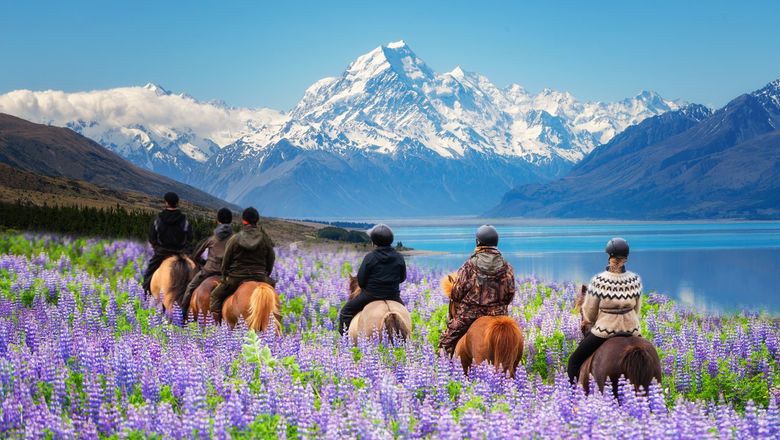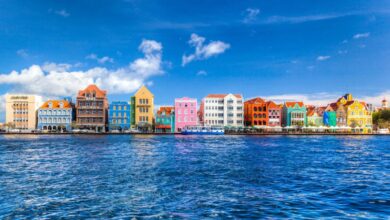Short Getaways Revolutionize Travel Industry

The Rise of Micro-Vacations
The global travel industry is witnessing a profound transformation as short trips emerge as the dominant market force. No longer confined to traditional one or two-week vacations, modern travelers are embracing brief, frequent getaways that fit seamlessly into demanding lifestyles. This shift represents more than a temporary trend—it’s a fundamental restructuring of how people conceptualize and experience travel. From weekend city breaks to three-day nature retreats, these condensed journeys offer meaningful escape without the logistical challenges of extended time away. The micro-vacation phenomenon reflects evolving work patterns, economic pressures, and changing consumer preferences that prioritize experience frequency over duration. This comprehensive analysis explores the cultural drivers behind this transformation, examines the diverse forms short trips take, analyzes industry adaptation strategies, and anticipates the future evolution of brief travel experiences in a time-constrained world.
A. The Cultural Drivers Behind Short Trip Dominance
Multiple societal shifts have converged to make short getaways the preferred travel format for millions worldwide.
A.1. Evolving Work Patterns and Time Scarcity
Modern professional life has fundamentally reshaped vacation possibilities and preferences.
-
Vacation Time Limitations: Unlike European counterparts with generous mandatory leave, American workers average only 10-15 vacation days annually, making extended trips logistically challenging while creating ideal conditions for shorter getaways.
-
Remote Work Integration: The hybrid work model enables “workcation” combinations where travelers extend weekends by working remotely from destinations Thursday and Monday, creating four-day experiences without using vacation time.
-
Always-On Culture Impact: The psychological difficulty of completely disconnecting from professional responsibilities makes brief, manageable absences more feasible than extended digital detoxes for many professionals.
A.2. Economic Pressures and Budget Optimization
Financial considerations make frequent short trips more accessible than traditional extended vacations.
-
Budget Distribution Preference: Rather than allocating a large sum to a single extended trip, travelers increasingly prefer distributing their travel budget across multiple experiences throughout the year.
-
Economic Uncertainty Response: In unpredictable economic climates, shorter commitments feel financially safer than expensive long vacations planned far in advance.
-
Experience Variety Valuation: Modern travelers often prefer sampling multiple destinations or experience types throughout the year rather than immersing deeply in a single location.
A.3. Psychological Shifts in Travel Motivation
Changing attitudes toward travel itself reinforce the appeal of brief getaways.
-
Regular Recharge Preference: Psychological research supports the benefits of frequent short breaks for mental health and creativity, aligning with the micro-vacation approach.
-
Novelty Seeking Behavior: The dopamine-driven pursuit of new experiences finds better fulfillment through multiple short trips to different destinations than through single extended stays.
-
Social Media Influence: The pressure to regularly share fresh travel content encourages more frequent, visually diverse trips rather than longer immersion in single locations.
B. The Diverse Landscape of Short Trip Formats
Short getaways have evolved into specialized categories catering to distinct traveler needs and preferences.
B.1. Urban Escapes and City Breaks
Weekend city visits represent the most established short trip category, now with modern variations.
-
Hyper-Local Exploration: Rather than attempting to see entire cities, travelers focus on specific neighborhoods, allowing deeper immersion and reducing transportation time between attractions.
-
Theme-Based City Visits: Focused itineraries built around specific interests (culinary tours, architecture walks, vintage shopping) maximize limited time through curated experiences.
-
Secondary City Discovery: Travelers increasingly bypass famous capitals in favor of smaller regional cities offering authentic culture with less crowding and lower costs.
B.2. Nature Immersion and Adventure Weekends
Brief nature getaways provide powerful psychological restoration in limited timeframes.
-
Forest Bathing Retreats: Structured one and two-night programs based on Japanese Shinrin-yoku principles offer scientifically-supported stress reduction through guided nature immersion.
-
Adventure Micro-Trips: Intensive weekend programs in activities like rock climbing, surfing, or mountain biking deliver skill development and adrenaline rushes within tight timeframes.
-
Agricultural Tourism: Farm stays and vineyard visits within 2-3 hours of urban centers provide rural escape without extensive travel time.
B.3. Wellness and Digital Detox Retreats
The compact wellness getaway has become a sophisticated category addressing modern stress.
-
Weekend Spa Intensives: High-end spas now offer condensed versions of traditional week-long programs, with targeted treatments addressing specific issues like sleep improvement or stress management.
-
Silent Retreats: Brief 1-3 night silent meditation retreats provide profound mental reset opportunities for time-pressed individuals.
-
Thermal Spring Escapes: Natural hot spring destinations within driving distance of urban areas offer therapeutic benefits without extended time commitment.
C. Industry Adaptation and Infrastructure Evolution
The travel industry has undergone significant transformation to capitalize on the short trip dominance.
C.1. Transportation Sector Innovation
Airlines, railways, and rental car companies have fundamentally restructured offerings for short trip travelers.
-
Weekend-Focused Flight Scheduling: Airlines have increased frequency on popular weekend routes while developing sophisticated dynamic pricing models that maximize revenue from short-term bookers.
-
Rail Network Optimization: High-speed rail networks in Europe and Asia have created specialized weekend passes and last-minute booking options specifically targeting spontaneous short trip takers.
-
Rental Car Flexibility: Car rental companies have introduced simplified processes, one-way rentals between nearby cities, and specialized short-duration insurance products.
C.2. Accommodation Sector Transformation
Hotels and alternative accommodations have redesigned services around shorter stays.
-
Day Use Hotel Rooms: Major chains now actively market daytime room rentals (typically 9 AM-5 PM) targeting business travelers between meetings and leisure travelers with long layovers or early arrivals.
-
Streamlined Check-in/Check-out: Recognizing that short-stay guests prioritize time efficiency, hotels have developed mobile check-in, digital key systems, and express checkout options.
-
Experience-Integrated Packages: Rather than simply selling rooms, properties now curate complete experiences (dining, activities, local guides) that can be consumed within abbreviated timeframes.
C.3. Experience Provider Adaptation
Tour operators and attraction managers have recalibrated offerings for condensed timelines.
-
Express Tours and Activities: Museums offer highlights tours, food companies provide condensed tasting experiences, and activity providers structure shorter versions of traditional offerings.
-
Time-Specific Pricing: Many attractions now implement dynamic pricing with discounts for off-peak hours, encouraging short-trip travelers to visit during less crowded periods.
-
Digital Integration: Comprehensive mobile apps allow short-stay visitors to optimize limited time through efficient routing, advance booking, and queue-skipping options.
D. Traveler Behavior and Planning Strategies
Short trip success requires different approaches than traditional vacation planning.
D.1. Strategic Destination Selection
Choosing the right destination is critical for satisfying short getaways.
-
Travel Time Considerations: The optimal short trip destination typically lies within 2-3 hours travel time, ensuring minimal transit relative to experience time.
-
Experience Density Evaluation: Successful short trip destinations offer concentrated attractions, activities, and dining options within walkable or easily navigable areas.
-
Seasonal Advantage Identification: Short trips allow strategic exploitation of shoulder seasons and weather windows that might be risky for extended vacations.
D.2. Efficient Planning Methodologies
Maximizing limited time requires sophisticated planning approaches.
-
Advanced Activity Scheduling: While maintaining flexibility, successful short-trippers typically book key experiences and dining reservations in advance to avoid disappointment.
-
Geographic Clustering: Grouping activities by location minimizes transit time and creates more coherent daily experiences.
-
Real-Time Optimization: Mobile technology enables continuous itinerary adjustment based on weather, energy levels, and unexpected opportunities.
D.3. Psychological Preparation Techniques
The mental approach to short trips differs significantly from extended vacations.
-
Pre-Trip Mental Transition: Successful brief travelers develop rituals to quickly shift from daily life to vacation mindset, maximizing the psychological benefits of shorter escapes.
-
Realistic Expectation Setting: Understanding that brief trips cannot comprehensively cover destinations prevents frustration and enhances satisfaction with curated experiences.
-
Digital Boundary Establishment: Despite shorter durations, establishing clear work-life boundaries during brief getaways remains essential for their restorative effect.
E. Economic and Environmental Implications
The dominance of short trips creates complex economic and environmental consequences.
E.1. Economic Impact Distribution
The short trip economy differs significantly from traditional tourism models.
-
Year-Round Revenue Stabilization: Short trips distribute tourist activity more evenly across seasons and days of the week, creating more stable revenue streams for destinations.
-
Secondary Destination Development: Locations previously considered only as day trips now develop accommodation infrastructure as short stay destinations in their own right.
-
Experience Industry Growth: The short trip model favors experience providers over souvenir sellers, shifting economic benefits within destinations.
E.2. Environmental Considerations
The ecological impact of short trips presents a complex picture.
-
Transportation Impact: Frequent short-haul travel, particularly by air, can generate higher carbon emissions per day than longer stays, though this varies significantly by transportation mode.
-
Infrastructure Efficiency: Shorter stays often mean less resource consumption per trip (water, electricity, waste generation) at accommodations.
-
Destination Management Implications: The distributed nature of short trip travel can reduce pressure on overtouristed hotspots while increasing impact on previously protected areas.
E.3. Future Evolution and Market Development
The short trip dominance continues to evolve with emerging trends and innovations.
-
Subscription Travel Models: New services offer curated short trips on subscription bases, reducing planning effort while guaranteeing regular getaways.
-
Bleisure Integration: The blending of business and leisure travel creates new categories of short trips built around professional commitments.
-
Transportation Technology Impact: Emerging technologies like hyperloop and autonomous vehicles promise to expand the geographic range of practical short trip destinations.
Conclusion: The Enduring Appeal of Brief Escape
The dominance of short trips represents a permanent restructuring of the travel landscape rather than a temporary market fluctuation. This transformation reflects deeper societal shifts in how we work, how we relax, and how we balance competing priorities in increasingly demanding lives. The micro-vacation has evolved from compromise to preference—a sophisticated travel format that delivers meaningful experiences, psychological restoration, and cultural enrichment within realistic time and budget constraints. As the travel industry continues to adapt to this new reality, short trips will likely become even more diverse, accessible, and seamlessly integrated into modern lifestyles. The future of travel appears not as a series of lengthy escapes from life, but as frequent, brief immersions that enhance daily existence—proving that sometimes, the most rewarding journeys aren’t measured in days, but in moments.
Tags: short trips, weekend getaways, micro-vacations, travel trends, quick escapes, short stay travel, mini vacations, bleisure travel, last minute travel, spontaneous travel, city breaks, travel industry






